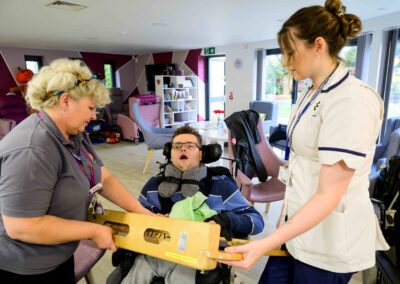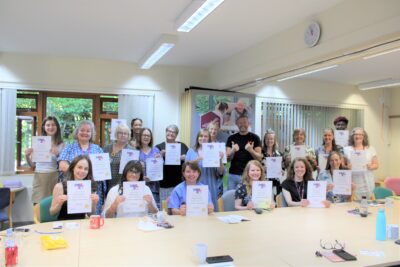Education Newsletter: Sally’s Blog – January 2021

BLOG 3 : “Leaving my old job and starting the new…what could possibly go wrong?”
As I was working out my notice before starting this job last year I went to visit my dad and step mum in Norfolk, just before Christmas. On arrival, my dear dad, of 95 years, was looking unwell. He had been sitting in the classic disease trajectory of frailty, something that we talk about when we discuss advance care planning, and that “surprise question” we use to help gauge prognosis was a definite no.
The surprise question is “would you be surprised if this person died in the next year?” I had discussed with his GP over the previous year, who had been in agreement that our focus was on quality of life for my dad. Following a fall at the beginning of the year and a long hospital admission “a do not attempt cardio pulmonary resuscitation form” was signed and kept in his patient held notes, so we all were aware that dads care was focused on quality.
There are 4 trajectories that lead to death.

Number 1, sudden death. unexpected; number 2, the rapid deterioration of someone living with an incurable cancer diagnosis; number 3 the labile deterioration of someone living with a chronic life limiting illness such as heart failure, and finally number 4, the frailty, with or without dementia, a long slow deterioration, gradually becoming weaker and weaker until death occurs.
Something we need to consider as we plan to discharge someone home to their preferred place
(priorities) of care (PPC) is that it can come at a cost to a family’s lifestyle. The normality and freedom that we often take for granted when you are independent, such as to get up when you want, eat when you want and wash when you want, all changes. Dad becoming dependent meant that my step mum would get up extra early so that she was washed and dressed herself before the carers arrived, she would lay out his clothes and prepare the bathroom (with his 101 creams that were to be applied to various parts of his body! Dad was very fastidious), for them to get my father washed and dressed for the day, and similarly in the evening when they would return to “put him to bed”. She would endure disturbed nights when his catheter blocked and wait up for a nurse to get to them to come to give him a bladder washout, which by then may be that the catheter would have bypassed and she would then be trying to change his wet bed on her own.
When we are having a conversation about advance care planning our focus is on the patient which is quite correct, however, as we work holistically we should also take into account those that are significant to the person and that will ultimately be with them if their PPC is home. There is no right or wrong, we do what we can, at the time with the best intent for all those that are affected. We can make a plan for end of life but a plan can be changed if at any time we change our mind.
If you would like to know more about advance care planning, then we are running courses funded by the CCG over the next couple of months. Please check out our website for available courses:
https://www.stelizabethhospice.org.uk/hospice-education/




